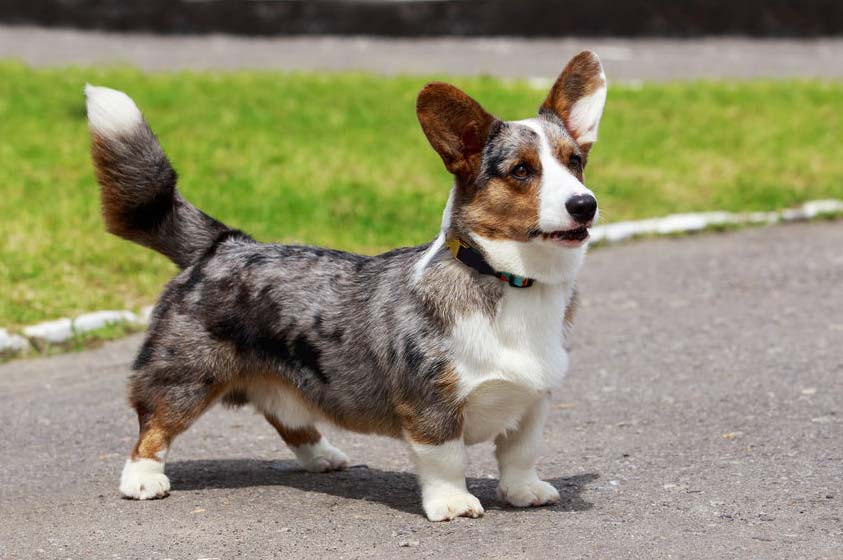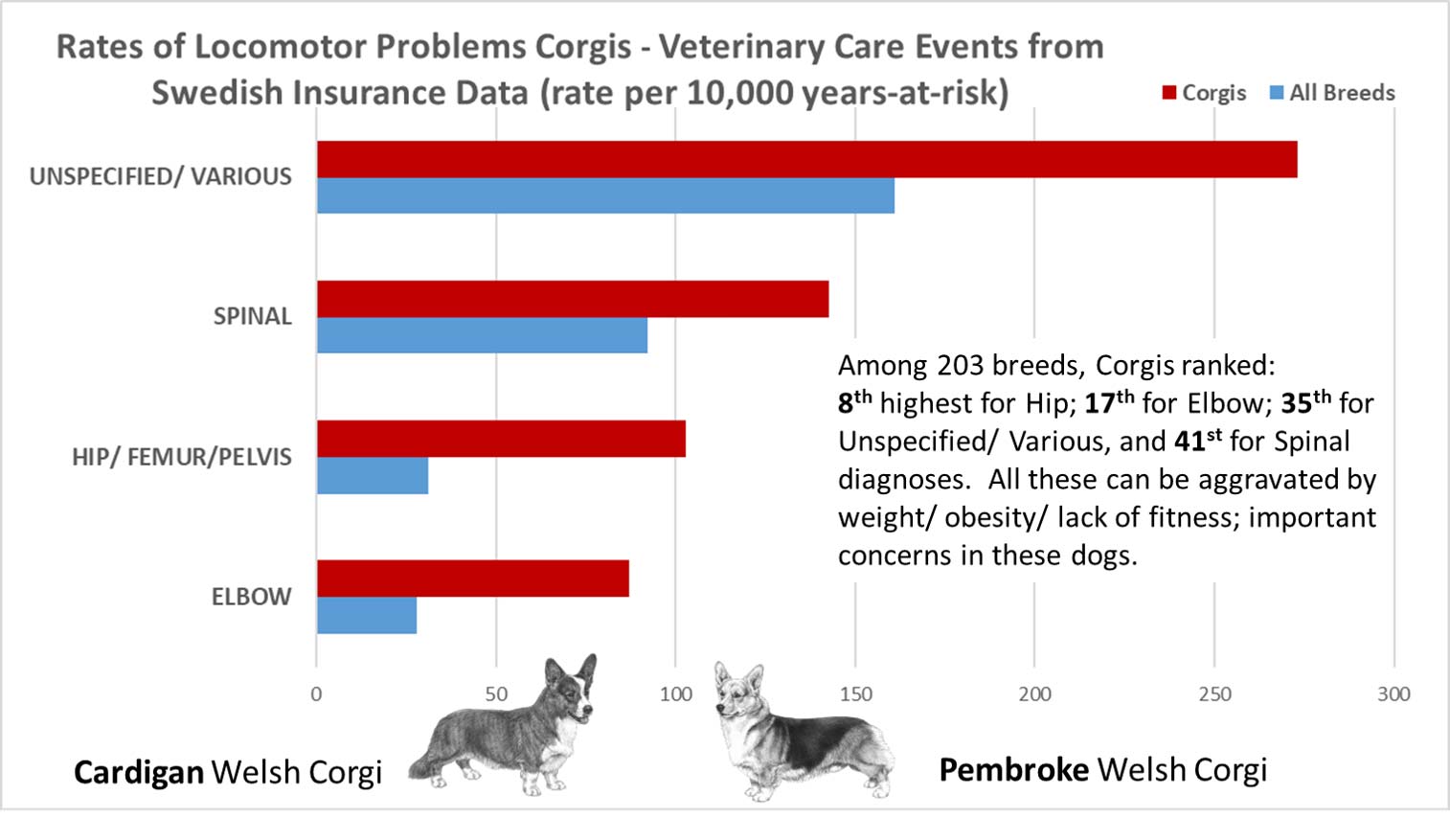Staying up to date with common, let alone rare health risks in susceptible dog breeds can be difficult. In this regular feature, our Educational Partner, the International Partnership for Dogs (IPFD), signposts resources on a particular breed and highlights breed-specific diseases.

Cardigan Welsh Corgi
Meet the Welsh Corgis
- Once interbred, the Cardigan Welsh Corgi and Pembroke Welsh Corgi were developed as herding dogs. Recent genomic research confirms their grouping with herding breeds.
- The Pembroke, more popular than the Cardigan, is the smaller of the two breeds; but there are other differences eg coat color, ear shape and tail length.
- Corgis are surging in popularity, eg showing a revival in the UK, partly due to recent films on the British Queen, and being #10 for registrations in 2019 in the American Kennel Club. Such popularity does not always bode well for breed health, and they are increasingly used in creating designer crossbreds.
- Overall, Corgis are a reasonably healthy breed. In Welsh Corgis- Get a GRIHP! see further statistics for conditions of interest in these breeds; and breed health strategies from various countries including genetic tests for PRA, eye exams, and hip and elbow screening.
- For more information, check out the Cardigan Welsh Corgi and Pembroke Welsh Corgi pages in our IPFD Breeds Database on DogWellNet.com. There you will find information for veterinarians and their clients, video clips, and links to breed groups, health surveys and research.

The image shows Swedish insurance data for 2011-2016, on 1.7 million dog-years-at-risk for all breeds and >2,500 for the Corgis. Corgis have a high frequency for veterinary care events relative to general and specific causes of locomotor problems, not surprising in this chondrodystrophic breed. However, their risk compared to other breeds is higher for hips and elbows than for spinal problems. Maintaining good body condition, appropriate weight, fitness, and proper training is crucial for these enthusiastic herding dogs.
The International Partnership for Dogs (IPFD) is a non-profit working for dog health, well-being, and welfare. This article has been prepared by its CEO, Dr Brenda Bonnett, DVM PhD

medium
[divider height=”30″]

